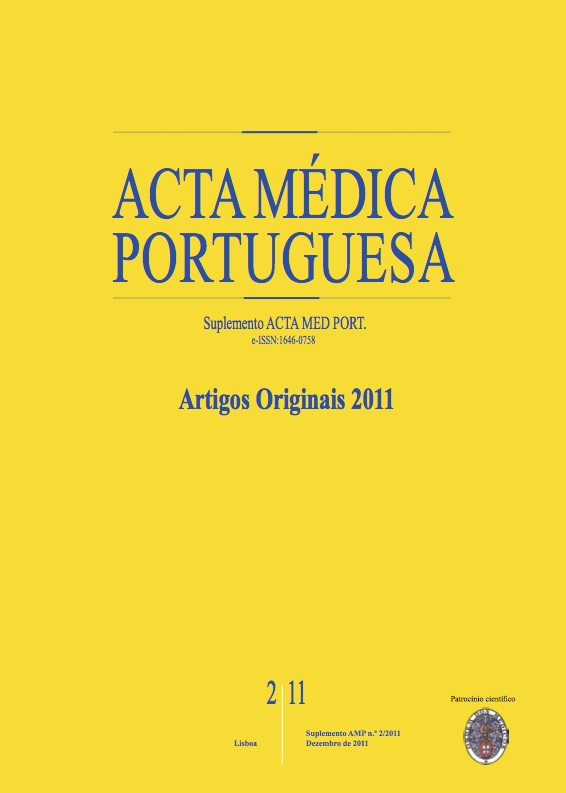New vaccines.
DOI:
https://doi.org/10.20344/amp.1513Abstract
Vaccines prevent more cases of diseases than any other medical treatment. However, information on new vaccines introduced in the market and not included in the National Vaccination Program (NVP) is often sparse, and their knowledge limited.Evaluate general and specific knowledge of healthy children's parents on three vaccines not included in the NVP: pneumococcal (PCV7), varicella (Var) and rotavirus (RV).Transversal descriptive study, in the format of a questionnaire applied randomly to parents of children that attended three Primary Care Centers of Portugal (Lisbon, Porto and Queluz), between March and April 2007. We analyzed sociodemographic parameters, level of knowledge (the existence and type of preventable disease by the three vaccines), its realization or intention of realization, and the availability of acquiring them by parents. Statistic analysis used Qui-Squares and T-Student tests (CI>95%), with p<0,05 considered statistically significant.We interviewed 187 children's parents with a median age of 13 months. Most (82%) had incomplete schooling and a mean monthly income of 1256€. In 83% of the interviews, the parents knew at least one of the vaccines: pneumococcal (72%), varicella (42%) and rotavirus (1,3%), and applying the same order, the type of disease each vaccine prevented: 118/135 (87%), 83/84 (99%) and 21/24 (87,5%). In 80% of cases, health care professionals provided the information to parents: pediatrician (67) and primary care doctor (49). Most (96%) parents considered the PCV7 the most important vaccine. Of the children evaluated, 93% had the NVS actualized, additionally, 39% had the pneumococcal vaccine, 0,5% varicella and 3% rotavirus vaccine. Knowledge about the varicella and rotavirus was associated with a higher academic level of the parents (40 vs 46,p = 0,018; 8 vs 16,p = 0,026) and the acquisition of the pneumococcal and rotavirus vaccine with a higher income (1506€ vs 1144€; p = 0,04) and (2283€ vs 1162€; p = 0,04).With exception of the PCV7 the remaining vaccines are still insufficiently known. It is up to health care professionals to disclose information and encourage families for vaccination.Downloads
Downloads
How to Cite
Issue
Section
License
All the articles published in the AMP are open access and comply with the requirements of funding agencies or academic institutions. The AMP is governed by the terms of the Creative Commons ‘Attribution – Non-Commercial Use - (CC-BY-NC)’ license, regarding the use by third parties.
It is the author’s responsibility to obtain approval for the reproduction of figures, tables, etc. from other publications.
Upon acceptance of an article for publication, the authors will be asked to complete the ICMJE “Copyright Liability and Copyright Sharing Statement “(http://www.actamedicaportuguesa.com/info/AMP-NormasPublicacao.pdf) and the “Declaration of Potential Conflicts of Interest” (http:// www.icmje.org/conflicts-of-interest). An e-mail will be sent to the corresponding author to acknowledge receipt of the manuscript.
After publication, the authors are authorised to make their articles available in repositories of their institutions of origin, as long as they always mention where they were published and according to the Creative Commons license.









